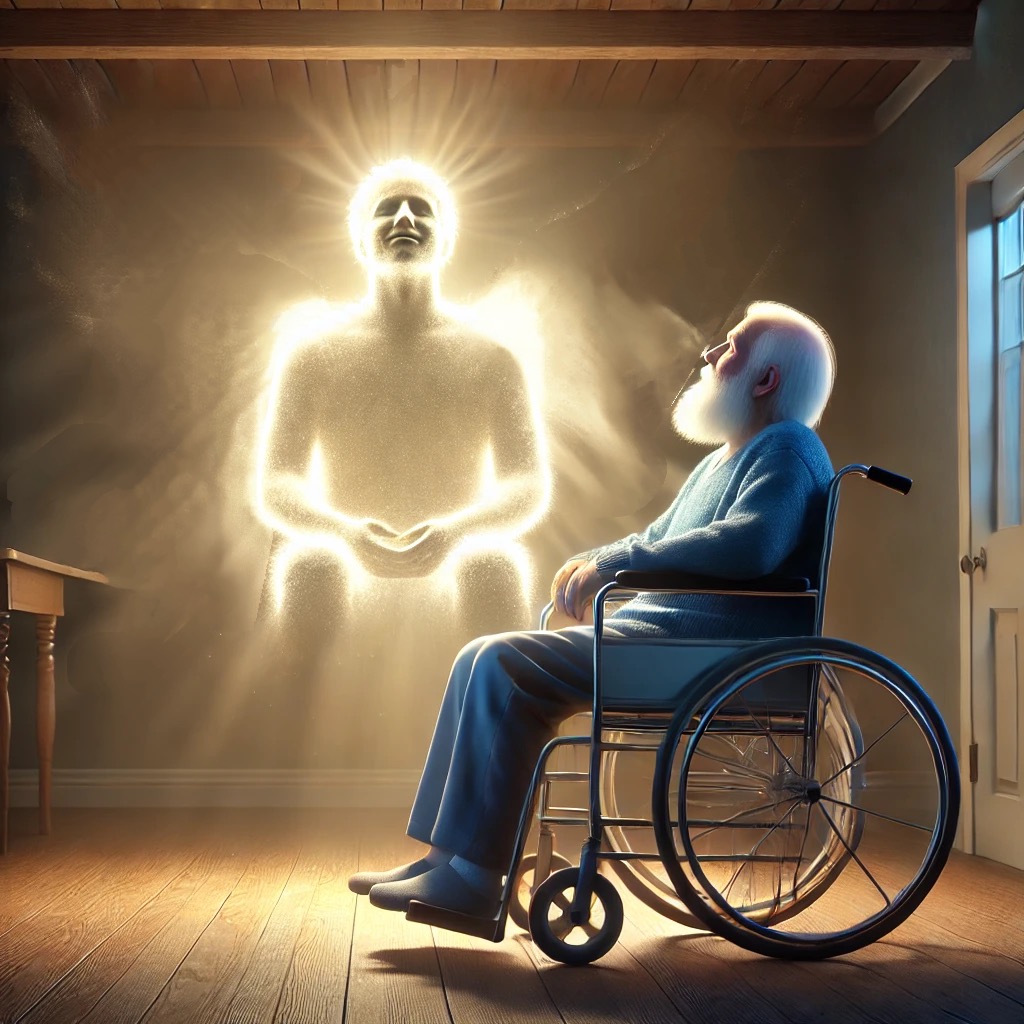
Alzheimer is a deeply impactful experience, both for the person affected and for those around them. We often see the painful side of the disease: people losing their memories, becoming confused, or even showing aggression. It can be very sad, especially when someone you love no longer seems like the person you once knew. But what if we tried to look at this situation from a different perspective?
I was fortunate to hear my brother say, in a moment of clarity: “I have never been so happy.” Despite forgetting much and knowing he was ill, he experienced a deep peace in that moment. He said: I look at this little man, this body, but I am happy. Perhaps, by losing his memories, he had found something that goes beyond the worries of daily life: a simplicity and joy in the present moment.
Of course, this is not always the story with Alzheimer’s. Some experience more challenging symptoms: anger, confusion, or moments of aggression. It can be frustrating and painful, especially for those who stand by and feel helpless. It may seem as though someone is trapped in a world they no longer understand. But perhaps these expressions are a sign of the struggle between what they are letting go of and the ego clinging to old forms. Love and the present moment are always there, but sometimes they can no longer be communicated. It’s not that the love isn’t there—it’s more that the disease blocks the ability to express it.
It’s a bit like trying to tune in an old radio. Sometimes you catch the frequency of love and joy, like my brother did, and other times there’s only static and confusion. But the station itself is never gone; love is always present at the core, even when it seems as though someone has lost it. Perhaps, despite the difficult moments, we can trust that beneath that layer of confusion, the true person is still in peace, no matter how invisible it may seem.
It takes patience and compassion to see through the outer layers of illness. And let’s be honest, sometimes that’s far from easy. But maybe, like my brother, even in those moments of loss, we can find something greater than we ever expected. Maybe Alzheimer’s, as hard as it is, is sometimes an invitation to let go—not only for the patient but also for us. To realize that what is real is never lost.
So yes, Alzheimer can bring sadness, silence, fear. But it can also bring moments of deep peace and joy, even when they are rare. Perhaps it is a way of letting go of the ego bit by bit until only the present moment remains. And in that moment, whether or not we can communicate, love is always there.
So the next time you notice someone forgetting, who knows, maybe they—and we—will discover something unexpected: that beneath all that forgetting, there is a deeper form of remembering.
see more at https://www.nullity.nl